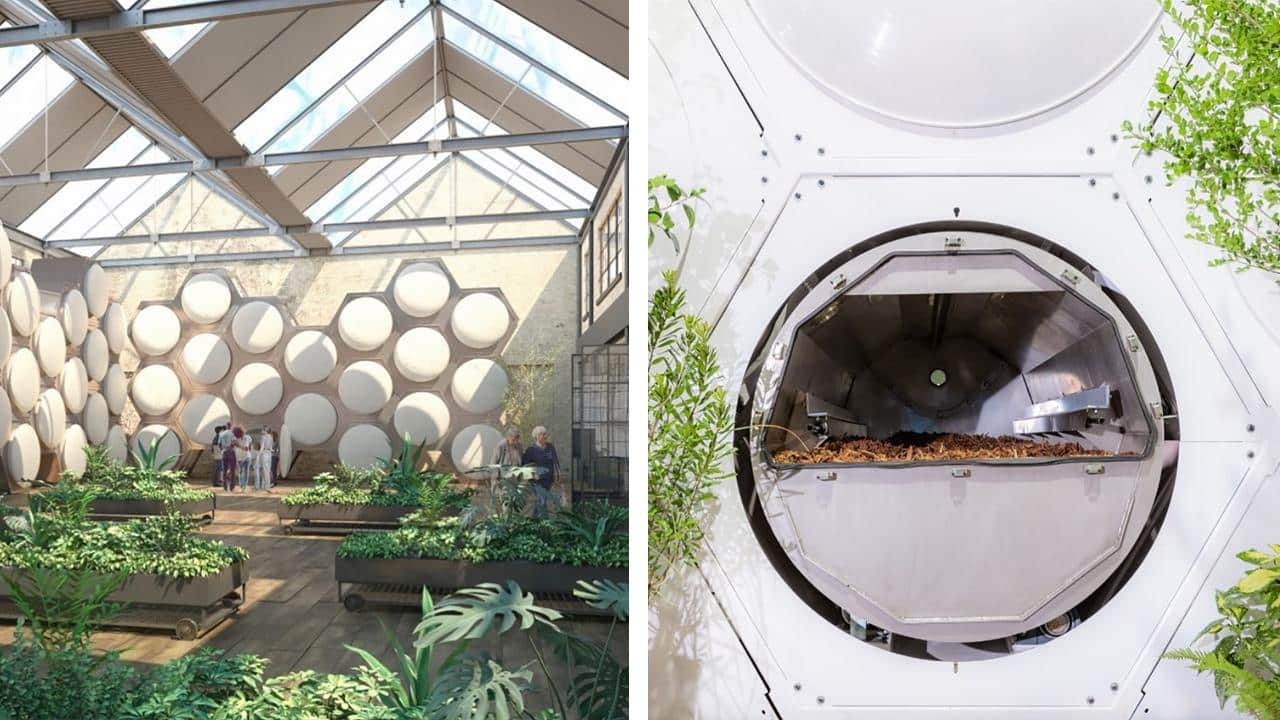Reflections on human composting, aging, and (once again) death
If you're reading this, please compost me when I die.
A few weeks ago California legalized human composting. I know because approximately six hundred million and ninety two people sent me a link to the article, which I refused to publicly acknowledge I had seen for most of the day because I was enjoying having six hundred million and ninety two separate conversations about it. California joins just four other American states (Colorado, Oregon, Vermont) in its legalization of human composting. Why so few? There’s been a tremendous amount of resistance to the concept from players as varied as big funeral homes and the Catholic Church, but—more significantly—there’s individual aversion. On the whole, American’s are uncomfortable with death and our funeral practices are geared more toward eternal preservation.
Factually, we are all going to die. But you wouldn’t know it based on how much we avoid the subject, and how fastidiously we attempt to preserve human bodies long after they’ve passed from life. Conventional burials require injecting corpses with chemicals that repel decomposer bacteria and then dropping them into cement-lined holes, where they can defensibly be said to remain intact for eternity. Reviewing informational materials regarding funeral options is borderline satirical on this point. For example, this “burial vault” service reassures customers that their loved one will be provided “security” and warns that traditional concrete liners may “break down over time.” Security from what? Isn’t “breaking down” the point? It’s hard not to see the American funeral industry as one gigantic anxiety attack; a practice in absolute denial.
I think part of human composting’s recent popularity is pure rebellion against this sort of spiritual rigidity. Factually, we are all going to die! My personal hero in this space is Katrina Spade, an architecture student who proposed the idea of human composting as her graduate thesis and then followed that up with a surprisingly powerful TED Talk regarding American’s fearful treatment of death. She now runs a human composting facility in northern Washington called Recompose. “Nature is really good at death,” Spade likes to say. She’s right.
Human composting works as all other composting does, although (smartly) it often happens inside specially designed facilities that are meant to accomodate the emotional experiences of the living. Bodies are prepared with biodegradable gowns. They’re laid to rest in an elegant vessel containing a mixture of alfafa, woodchips, and straw. Decomposition is allowed to happen. Some facilities will pump oxygen into the vessel to expedite decay. Others will rotate the vessel occasionally. After about two months, what remains of the body is about a cubic yard of fluffy and nutritious soil. This product is returned to the family use as they please, although some facilities offer options to donate.
Thinking about death and being composted makes me think of something else, though, and that’s aging. It is a vanishing minority of my friends over age 35 who are declining to get Botox, or other procedures similarly-aimed at permanent youth, which is something I have spent a lot of time mulling across the last few months. I have no interest in judging people their choices and I think my friends (Botox or not) are beautiful and perfect beings, but I also have absolutely no desire to get “work” done, and sometimes I feel quite lonely in my desire to—simply put—get old. I want to become different. I have no doubt that my ritual experience of composting, and it’s practical relationship to transformation, has contributed to my joy in this feeling.
It seems to me that aging happens both slowly and extremely fast. One day you wake up and there’s a line there that simply wasn’t before, and other times you don’t realize anything has changed until you see an old picture. That’s life, isn’t it? The work of seeing, feeling, processing, and ultimately embracing these changes is continous, and it is the type of work that deepens you. It readies you for death. And while it’s true that a few minor procedures and relatively little money can punt this work down the road a few miles, age will eventually happen and nothing will make it not happen. It will not be better, for me personally, to develop a relationship to my changing body in ten years time versus right now, today.
Now, I’ll end on a humorous note— with a screenshot that my friend Amanda posted at some point over the summer, and to which I return often:
This newsletter will always be free to all, but if you upgrade to a paid subscription today, you’ll be supporting the ongoing provision of resources, thoughts, and education for all. <3



